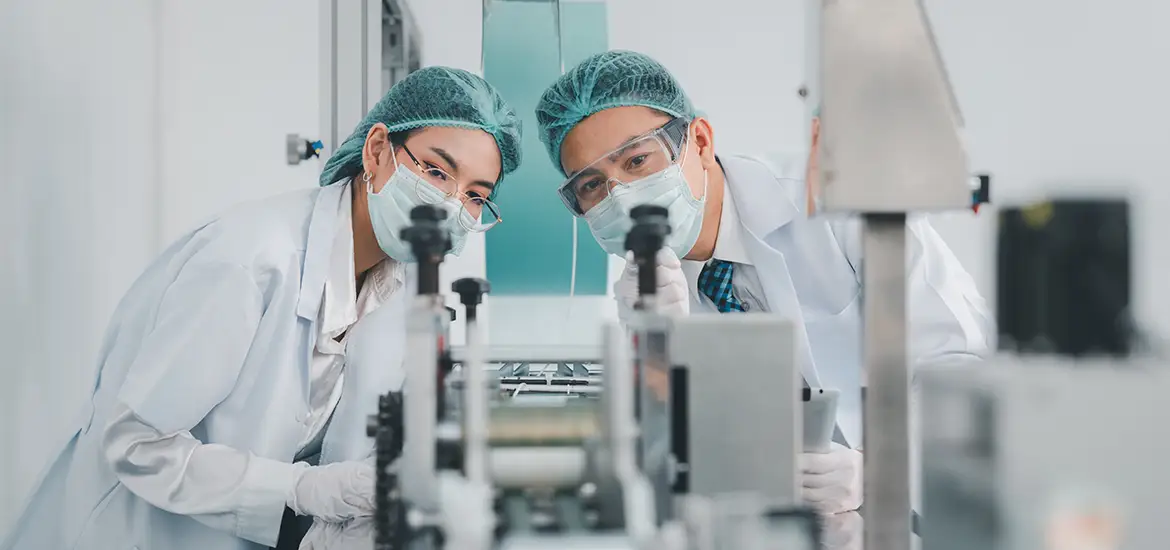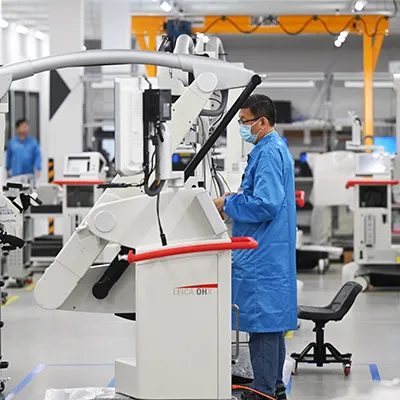Asia's growing middle-class populations and rising demand for quality healthcare are set to make Asia-Pacific (APAC) the world's second-largest source of demand for medical technology (MedTech) after the United States. The region's MedTech market is expected to expand by a compound annual growth rate of 4.4 per cent to US$225 billion (S$295.9 billion) by 2030.
Singapore can play a role in helping MedTech manufacturers and startups navigate the region’s varying regulatory and market requirements to serve this demand. Well-connected to the rest of the region with a stable and facilitative business ecosystem and a strong talent pool, Singapore is home to all of the top 30 multinational MedTech companies such as Medtronic, Becton Dickinson and ThermoFisher.
These global companies have located a range of activities in Singapore, from research and development (R&D) to manufacturing and their regional headquarters (HQs). Here's what makes Singapore attractive to MedTech players:
1. A trusted location for manufacturers to supply high-value MedTech products for Asia and beyond
Manufacturing makes up about 20 per cent of Singapore's economy. The country is home to best-in-class manufacturing plants for several global MedTech players, such as Agilent Technologies. Its factory has been recognised as a leader in artificial intelligence (AI)-enabled manufacturing for scientific instruments by the World Economic Forum as part of its Global Lighthouse Network.
Chow Woai Sheng, Agilent’s Vice President of Global Instrument Manufacturing, highlighted the company's success in implementing AI technologies to transform their manufacturing processes. Agilent has deployed 250 industrial Internet of Things stations that utilise AI algorithms to learn from previous test results, identify patterns, and maintain automated tests. This implementation has led to a significant 23 per cent improvement in work cycle times. They have also successfully implemented concepts like the "lights-out factory" – a fully automated system that runs product testing without human intervention, resulting in a 33 per cent increase in overall productivity. Additionally, Agilent's AI initiatives have contributed to sustainability goals, reducing recycled waste by 53 per cent and improving productivity by 31 per cent through big data architecture and analytics.
In Singapore, corporates have access to resources that accelerate AI adoption. By participating in Google Cloud's AI Trailblazers Initiative, pharmaceutical giant GSK developed two prototypes. The first was an intelligent Good Manufacturing Practice assistant that sifts through text data from documents, instructions, and historical information to enhance decision-making. The second was an Investigation Report Maker that accelerates the process of compiling deviation investigation reports. Both prototypes have improved the efficiency of data retrieval by leveraging generative AI.
Alongside growing demand in Asia, Singapore's MedTech manufacturing output has increased from US$4 billion (S$5.33 billion) to US$15 billion (S$19.99 billion) in the last decade, across a range of product segments such as medical devices, digital health, life science tools and diagnostics. Despite Singapore's size (just slightly smaller than New York City), Singapore's MedTech sector punches above its weight on a global scale. For instance, the country manufactures:





